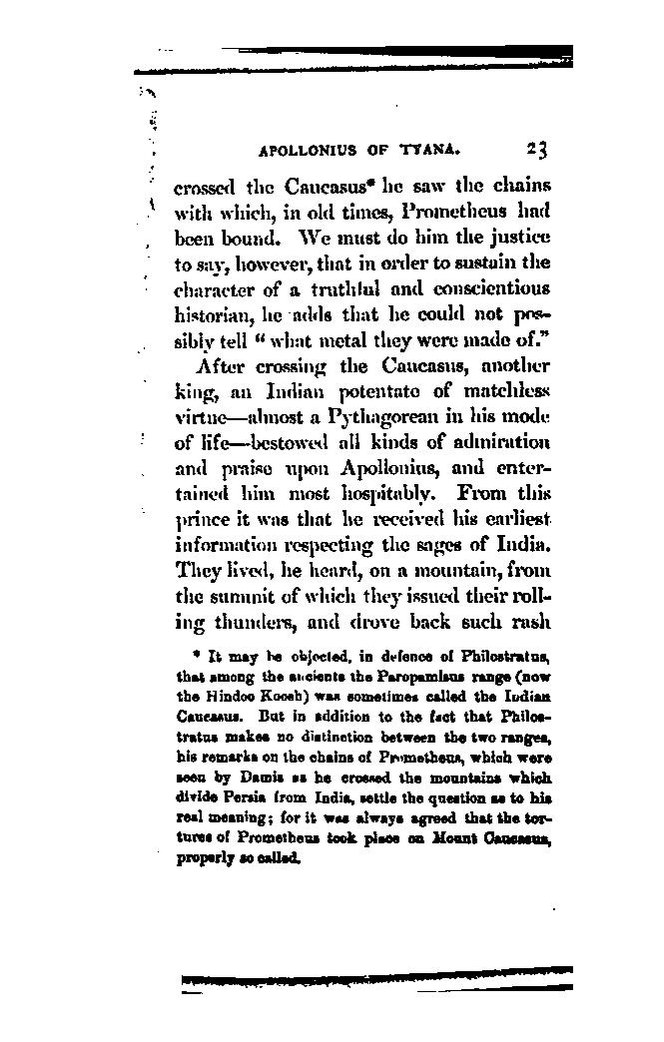APOLLONIUS OF TYANA.
23
crossed the Caucasus[1] he saw the chains with which, in old times, Prometheus had been bound. We must do him the justice to say, however, that in order to sustain the character of a truthful and conscientious historian, he adds that he could not possibly tell "what metal they were made of."
After crossing the Caucasus, another king, an Indian potentate of matchless virtue—almost a Pythagorean in his mode of life—bestowed all kinds of admiration and praise upon Apollonius, and entertained him most hospitably. From this prince it was that he received his earliest information respecting the sages of India. They lived, he heard, on a mountain, from the summit of which they issued their rolling thunders, and drove back such rash
- ↑ It may he objected, in defence of Philostratus, that among the ancients the Paropamisus range (now the Hindoo Koosh) was sometimes called the Indian Caucasus. But in addition to the fact that Philostratus makes no distinction between the two ranges, his remarks on the chains of Prometheus, which were seen by Damis as he crossed the mountains which divide Persia from India, settle the question as to his real meaning; for it was always agreed that the tortures of Prometheus took place on Mount Caucasus, properly so called.
